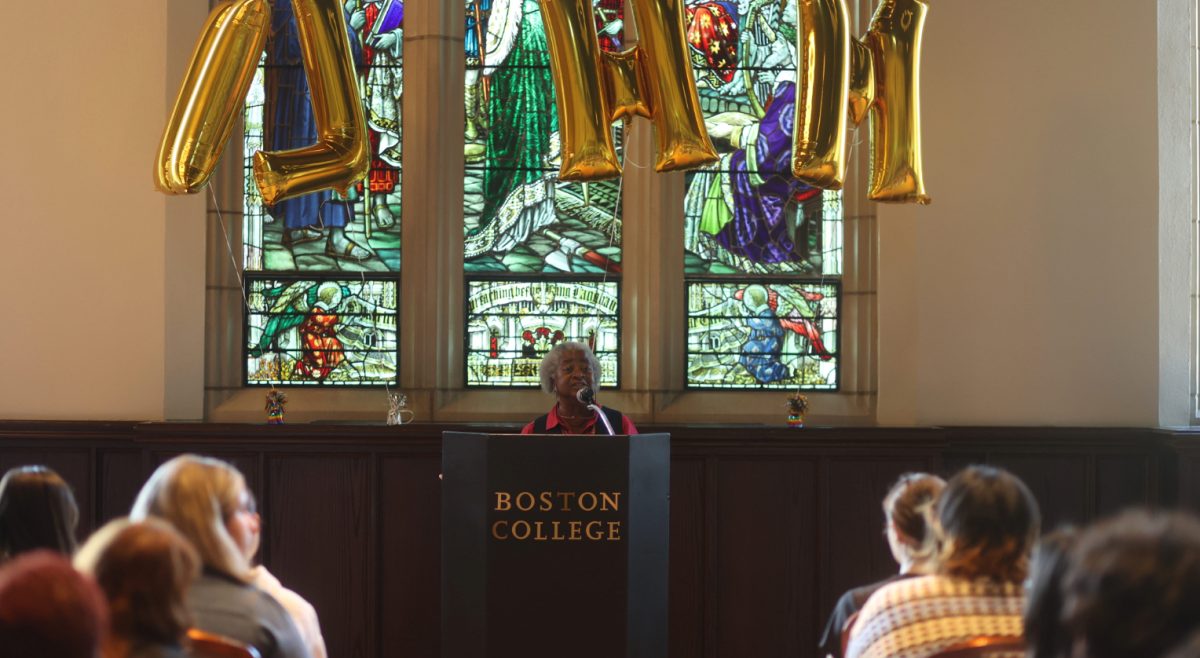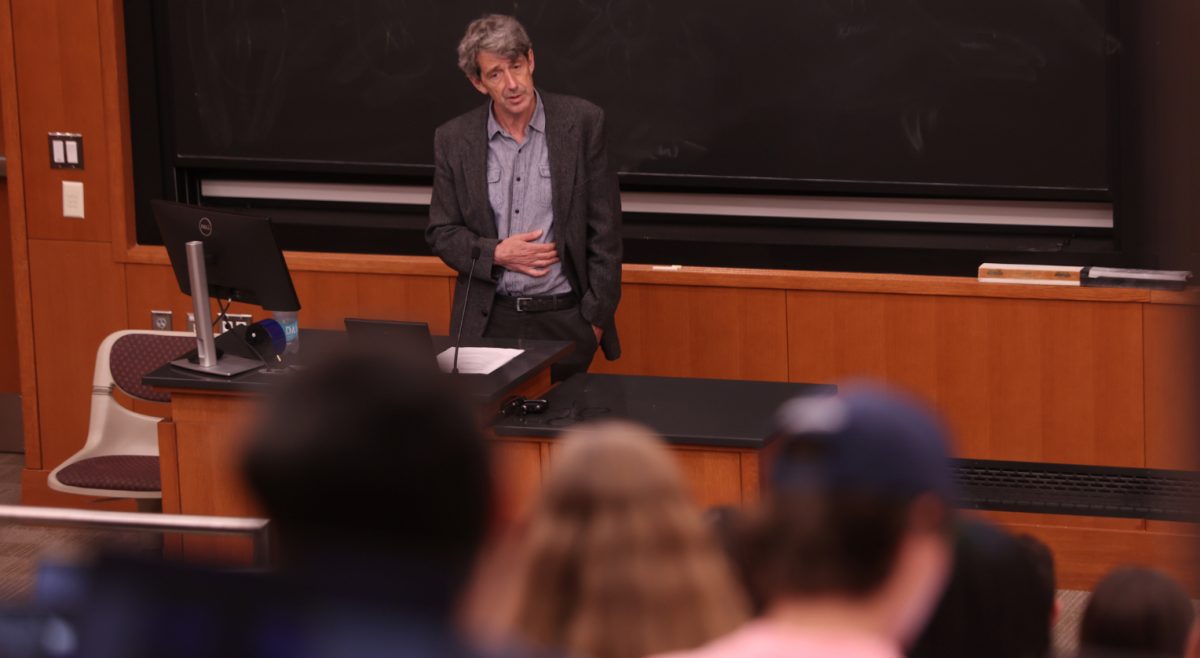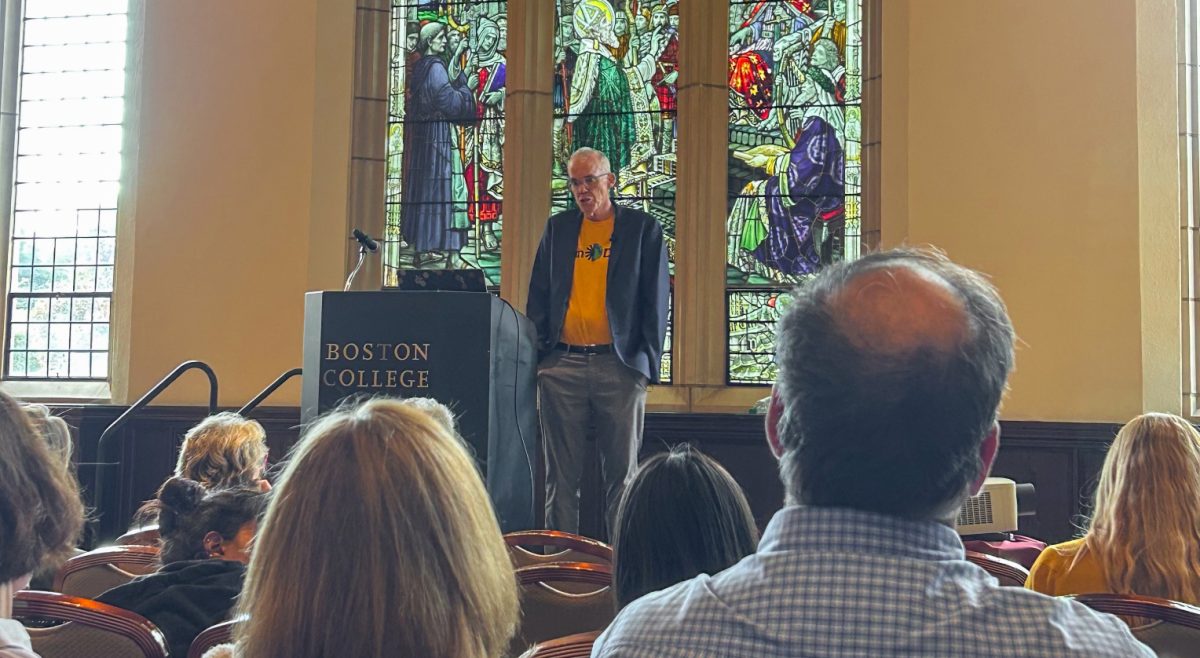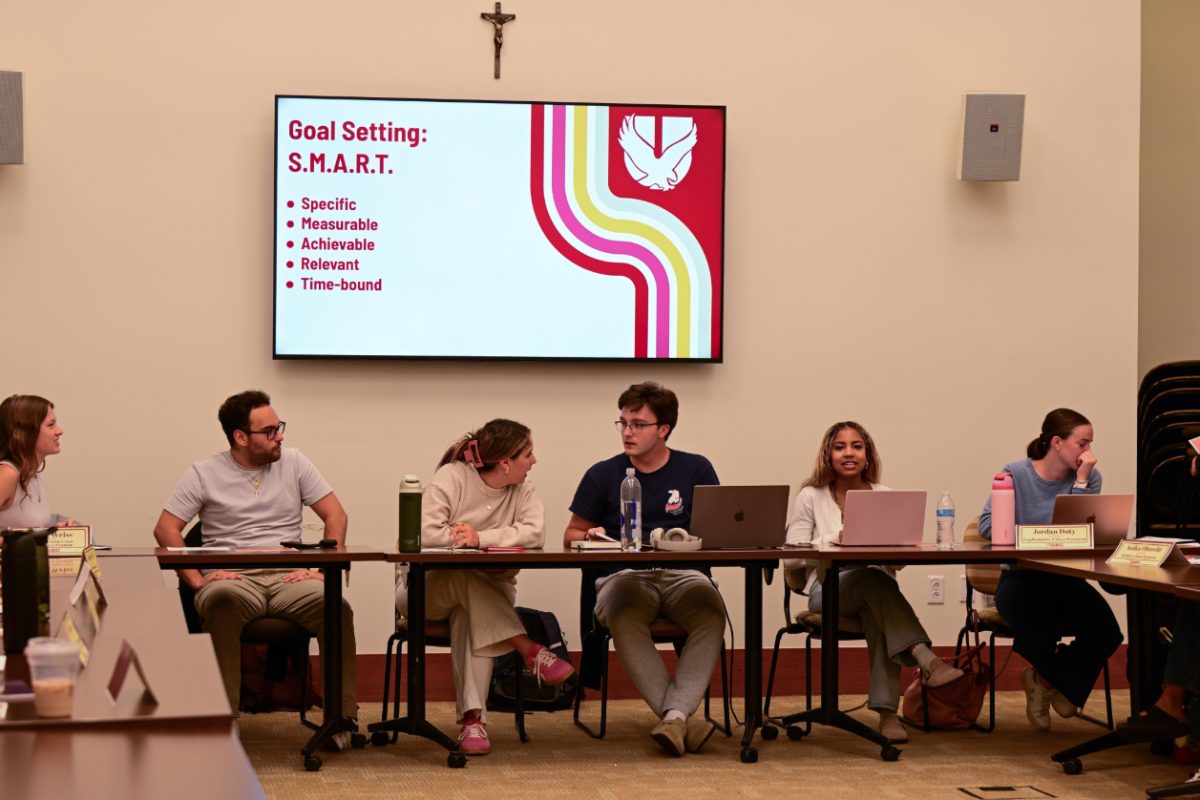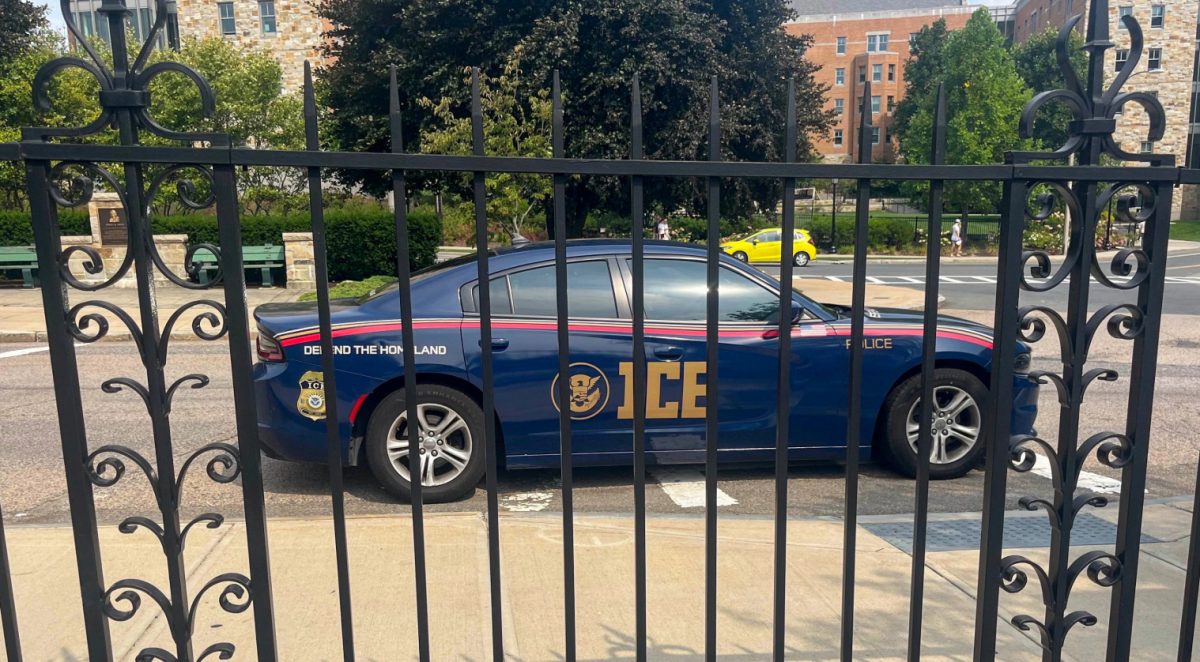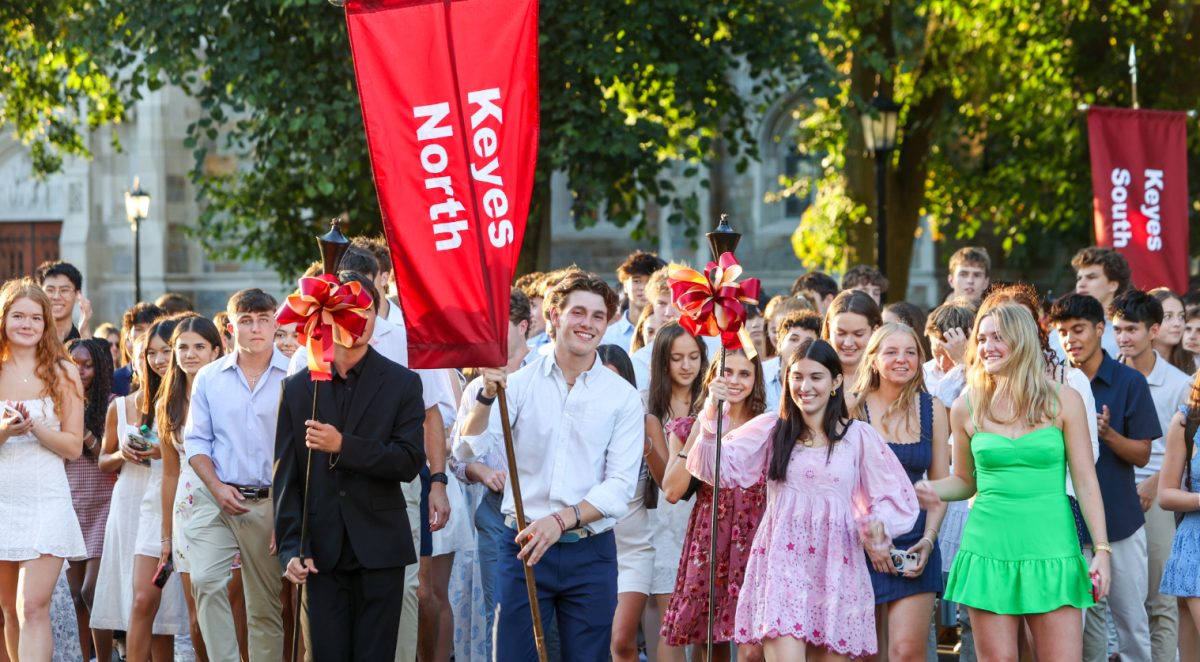Find More 2014 Love Your Body Week Coverage Here
Lily Myers first started writing poetry in a creative writing class in her junior year of high school. She first encountered slam poetry during her first year at Wesleyan University. Then, as a college senior, her poem “Shrinking Women” went viral on YouTube and won the “Best Love Poem” award at the 2013 College Unions Poetry Slam Invitational.
Myers spoke Wednesday in Cushing 001 as part of Love Your Body Week. The Women’s Center, the Thea Bowman AHANA and Intercultural Center, and the Office of Health Promotion hosted the event.
Before Myers spoke, Danny Deleon, A&S ’15, and Haley Kerr, A&S ’17, each performed a slam poem. Deleon and Kerr are co-presidents of BC Slam, which, according to Deleon, became an official organization this year. Deleon performed a piece called “Dirty Laundry,” about his experience with race in the social fabric.
“I feel like it’s relevant to Love Your Body Week because for me, what this poem is about is really loving my culture and loving myself,” he said.
After the students’ performances, Myers began her reading. The first poem she read was about her brother, who does not understand the word “gendered” or the idea that women are on display in public. She wrote the poem three years ago, when her consciousness about the differences between men and women began to develop, she said.
“It developed from a conversation with my brother,” she said. “It was mind-blowing to me. I was like, we have had such different experiences of being alive in the world. I never forget I’m a woman. He was saying, ‘Oh we’re neutral; we’re all the same,’ and I was like, ‘Oh, ideally’.”
Myers went on to discuss her experience during a semester abroad in Argentina, where ‘catcalling’ is rampant. The semester was challenging for her, but she did experience times of female comradery that inspired her next poem, “Life By Way of Love,” she said.
“As a woman, as a feminist, I think a lot about street harassment because I hate it a lot,” she said. “When it happens over and over again like it does over the course of your life if you’re a female, it’s really systematically oppressive and it reminds you over and over again of the body you’re in and how it’s viewed. It’s giving you a sexual identity in the public world when it’s really not what you want to be all the time.”
After reading a few more poems that focused on how empowered or disempowered she felt as a woman, Myers ended with the poem that went viral on YouTube, “Shrinking Women.” The poem focuses on her mother and how Myers has learned from her to turn inward rather than taking up too much space. Myers feels mixed about the poem’s success—she never expected her mother to see it, she said.
She is happy that it has created dialogue, although. Many people have contacted her saying they felt similarly and that they relate to her words, she said.
“It was really hard for this to go public because my mom saw it and I didn’t want her to see it,” she said. “It was a challenge for me to live up to my own claims about starting dialogue because I was like, I want to spark dialogue and it did cause a lot of dialogue with my mom.”
When she was younger, Myers was never attracted to the idea of writing poetry—perhaps because her father wrote poetry, she said. But she writes poetry to process what has happened to her and to make connections between various parts of her life. In the process of writing, she is able to reclaim what has happened to her, she said.
“It just teaches me what is going on in a way. Like with ‘Shrinking Women,’ if I hadn’t written that I don’t think I would have made all those connections that these things have the same roots,” she said. “The power that comes from writing in that you get to claim agency over what has happened to you—I think that’s one reason I like it so much.”
Featured Image by Emily Sadeghian / Heights Editor



